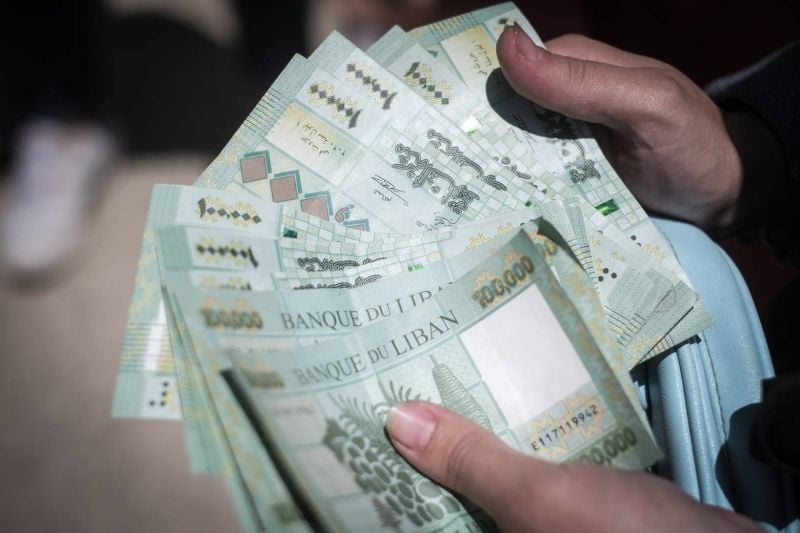
A person displays Lebanese lira. (Credit: João Sousa/L'Orient Today/File photo)
BEIRUT — For the third year in a row, the average annual inflation rate remains in the triple digits, standing at 222.42 percent in 2023. This rate, calculated from the year-on-year inflation average for each of the 12 months of the year, stood at 171.2 percent in 2022, and 154.8 percent in 2021.
Lebanon is in the fifth year of an economic crisis that saw the Lebanese lira dramatically depreciate, decimating savings and leaving more than half of the population living in poverty.
It seems though that inflation has finally peaked.
According to the latest data from the government’s Central Administration of Statistics (CAS), Lebanon’s Consumer Price Index (CPI) — calculated in Lebanese lira — has gone down to 0.02 percent in December, after having decreased to 2.6 percent month-to-month in November 2023.
The fact that most items are now priced in dollars, coupled with the fact that the lira has remained somewhat stable for the past five months, hovering around LL89,000 to the US dollar, could explain the slowdown in inflation in late 2023.
In December, the decrease was led by the prices of water, electricity, gas and other fuels which have gone down by 9.59 percent, after having decreased by 1.7 percent in November. Transportation prices have also decreased by 1.88 percent, going further down compared to the previous month which saw a 0.7 percent drop.
Some prices continued to rise, though negligibly: Recreation, amusement and culture-related prices have gone up by 7.95 percent, compared to an increase of 2.7 percent in November, while clothing and footwear prices increased by 4.76, down from a hike of 8.2 the prior month. Food and non-alcoholic beverage prices have increased by 3.45 percent, up from an increase of 2.7 month-on-month.
If we compare by region, it’s Mount Lebanon that drives the decrease, having recorded in December a monthly decrease of 1.30 percent. Prices in the rest of the country have all slightly increased, with the South recording the highest monthly increase of 3.52 percent, followed by Nabatieh with an increase of 2.36 percent, Beirut with 1.61 percent, Bekaa with 0.31 percent, and the North with a negligible increase of 0.01 percent.
